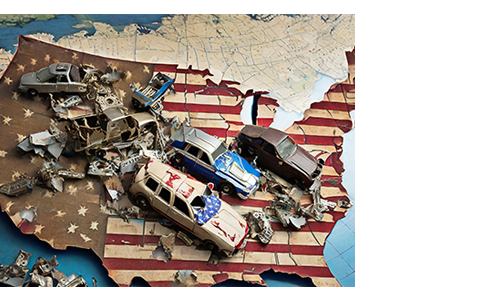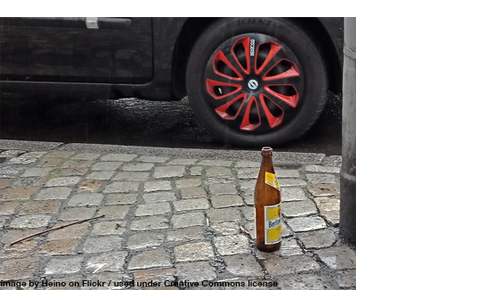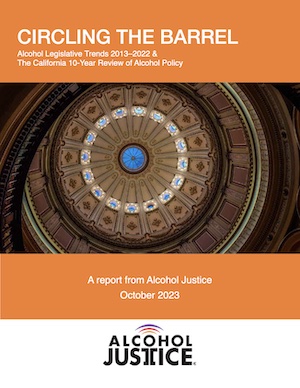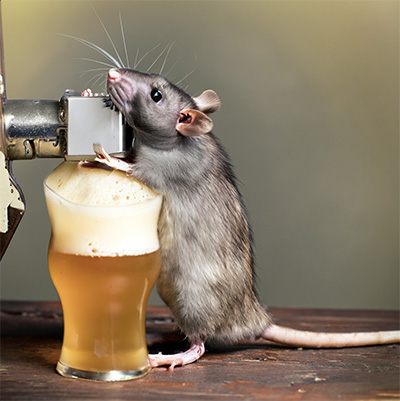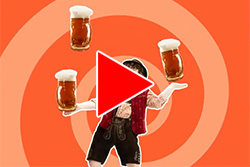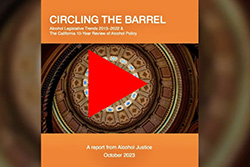CA Legislative Worst Practices
A new report traces the legislature's accelerating trajectory of deregulation. Follow over the years as lawmakers drag CA further and further from international standards.
READ MORE
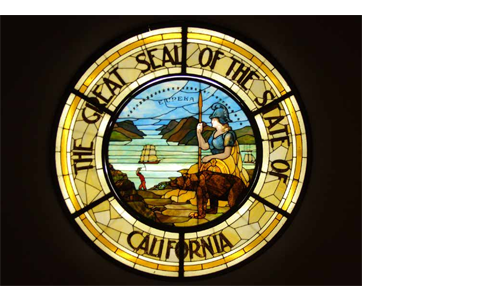

Alcohol Allies Rush to Revive Rejected Bills
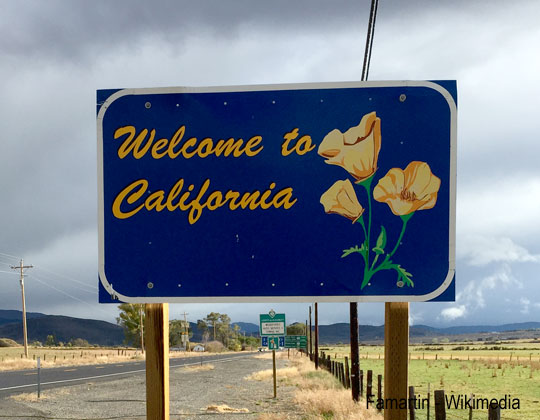 California’s 2022 legislative session opened with an all-fronts push of three stalled bids to deregulate alcohol. The prior year had seen an all-fronts effort to boost alcohol industry profits, giving every level of industry more service space, more delivery rights, and less oversight. Even so, as the emergency conditions that justified the original deregulatory efforts were withdrawn, some of the more reckless efforts to permanently increase alcohol sales—and therefore alcohol consumption—in the state were blocked or stalled.
California’s 2022 legislative session opened with an all-fronts push of three stalled bids to deregulate alcohol. The prior year had seen an all-fronts effort to boost alcohol industry profits, giving every level of industry more service space, more delivery rights, and less oversight. Even so, as the emergency conditions that justified the original deregulatory efforts were withdrawn, some of the more reckless efforts to permanently increase alcohol sales—and therefore alcohol consumption—in the state were blocked or stalled.
But as the second half of the 2021-2022 legislative session sees these bills back with vengeance. Here are the red-flag bills in Sacramento this year:
SB 793, aka Let’s Get Drunk With Kids!
This bill makes two substantial changes to bars’ service privileges, both of which create reckless new channels for alcohol harm. The first change encourages city to create “entertainment zones” wherein bar and restaurant patrons can carry drinks directly out of the bar, consume them on the street, and carry them into other venues. Areas with these policies already exist, including the Las Vegas Strip and Bourbon St. in New Orleans. These “entertainment zones” are frequently connected with violence, and functionally dedicate the blocks in which they are authorized to just consumption. By encouraging constant drinking, they hamper bar employees ability to engage in oversight and responsible beverage service, make it impossible to hold venues accountable for violence and overservice, and may actually diminish the economic viability of any business that doesn’t serve alcohol.
Yet it is the second change that is stranger and more reckless. SB 793 also creates a “music venue license,” which allows any bar to stop carding at the door so long as there is a band playing. It is a strange and unnecessary provision; either teenagers are essential to a music venue’s survival, in which case they don’t need a bar, or alcohol service is essential to the bottom line, in which case they do not need to permit minors. Even with perfect monitoring of drinking on the premises, this bill makes it so that no teenager can go out to a show without having to deal with drunk adults. This has the short-term effect of making teenagers vulnerable to the violence, crime, and sexual assault that is associated with overconsumption of alcohol, and the long-term effect of creating a direct and efficient way for the alcohol industry to market to minors.
There is a better political climate in which California lawmakers have the courage and imagination to incentivize venues to operate with closed bars for all-ages shows—or even to let the state underwrite the financial viability of drug-free, alcohol-free showspaces. Unfortunately, that climate remains clouded over by the prospect of making money for an alcohol industry that is financially reliant on getting kids to drink more and drink younger.
SB 620, aka Handles on Your Doorstep
Direct delivery has long been a privilege of the powerful California wine industry, and this has sparked envy among other alcohol producers. With enthusiastic backing of influential Napa state senator Bill Dodd, distillers may be poised to also enjoy that privilege. This bill opens the gates to delivery through common carriers such as FedEx and UPS to deliver hard liquor to the doorstep.
This bill has obvious problems with enforcement, making it much simpler for purchases to be made by minors and delivered with cursory ID checking by harried couriers on long routes. But it also creates the possibility for subscriptions to booze. Although no single distiller can deliver more than 36 liters per year—about 20 handles of booze, the equivalent of 2.5 drinks per day—there is obviously no cap on how much a customer can receive from multiple distillers. Moreover, this privilege does not extend only to California producers; any distiller can now ship to California doorsteps, including the biggest of Big Alcohol. This, ironically, increases the pressure on local producers and opens the likelihood of them being outcompeted by behemoths with unlimited marketing and advertising budgets, and the clout to negotiate sweetheart deals with the carriers.
This is part and parcel of circumventing the three-tier system. This system is supposed to mandate that producers, distributors, and retailers should not be the same company. Yet between sampling rooms, brewpubs, and now home delivery, the distinctions have become completely moot. The central intent of these tiers was to reduce the threat of alcohol monopoly. Now the legislature, whether through short-sightedness or duplicity, instead seeks to enshrine it in the name of consumer choice.
SB 846, aka Alcohol Uber Alles
In 2020, the public safety inspired closures of bars and restaurants led to supposedly temporary measures allowing mixed drinks to be sold to go. Last year the legislature enshrined that privilege, albeit in a limited way. Currently, California law allows restaurants to deliver mixed drinks for takeout to customers picking up food from a restaurant. However, some bars and restaurants want the option to make use of delivery services such as Uber and Lyft to expand their profits without having to be accountable for their customers.
SB 846 creates the mechanism by which this can happen. It creates a permitting system whereby bars and restaurants can deliver mixed drinks in any quantities, with no obligation to also serve food, via any permitted delivery service. Moreover, the bill explicitly absolves them of any of the normal elements of responsible beverage service—so long as the retailer “affirms” that the consumer is over 21, they have no liability for receipt by a minor, a person who is dangerously intoxicated, or a sale that creates any other dangerous situation. The liability instead falls on delivery companies, who, sitting on billion-dollar warchests and already prone to treating their drivers as disposable, can laugh away the thousand-dollar fines for violations and divert all the blame on the person making the delivery.
In short, this bill: a) encourages alcohol consumption in situations where people would not otherwise have even thought of drinking, b) perpetuates a method of sale which has been repeatedly exploited by minors seeking alcohol, c) creates a shell game of accountability for alcohol harm, and d) explodes the possibility of alcohol-related profits for delivery companies that have a consistent, decade-long pattern of contempt for transparency, public safety, and employee wellbeing.
Two of these bills—SB 793 and SB 620—have already passed through the State Senate and are in front of the Assembly. The third has been fast-tracked. It is possible that Big Alcohol’s boosters are attempting to fast-track these bills while “emergency” conditions increase public sympathy for bars and restaurants. Or it could be simpler: every day that passes is an extra buck that the industry can’t deposit. Either way, Alcohol Justice remains ready to oppose these bills every step of the way, and encourages our supporters and allies to remain vigilant and ready for the fight.
READ MORE about reckless deregulation under COVID-19 restrictions.
TAKE ACTION
Don't mortgage the future.
Bring alcohol fees into the present & fund our kids at $500m a year.
TAKE ACTION
TO MODERNIZE CA
ALCOHOL TAXES
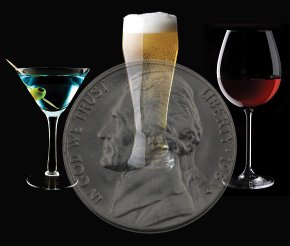
CA lawmakers want to:
♦ sell more alcohol at colleges
♦ market to underage students
♦ let the excise tax decay
TELL THEM THERE'S A BETTER WAY
IN THE DOGHOUSE
Big Alcohol Bids for Underage College Students, Cal State Willing to Sell
AB 840 is moving steadily through the legislature, with few aware of its true impact: to vastly increase the alcohol industry's ability to paste ads all over Cal State campuses, and reach its 180,000 underage students.
READ MORE...
LEGISLATIVE ACTIVITY
 CA Alcohol Legislation
CA Alcohol LegislationAll legislation related to alcohol policy in Sacramento. Includes analysis & position letters from AJ & CAPA.
 NEW! CA Opioid Legislation
NEW! CA Opioid LegislationCA bills concerning opioid and overdose prevention, recovery, and treatment.
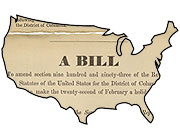 Nationwide Legislative Tracking
Nationwide Legislative TrackingState-by-state and federal bills relevant to AJ projects/campaigns.
ADVOCACY TOOLS
Help us hold Big Alcohol accountable for the harm its products cause.
| GET ACTION ALERTS AND eNEWS |
STAY CONNECTED    |
CONTACT US 24 Belvedere St. San Rafael, CA 94901 415-456-5692 |
SUPPORT US Terms of Service & Privacy Policy |



